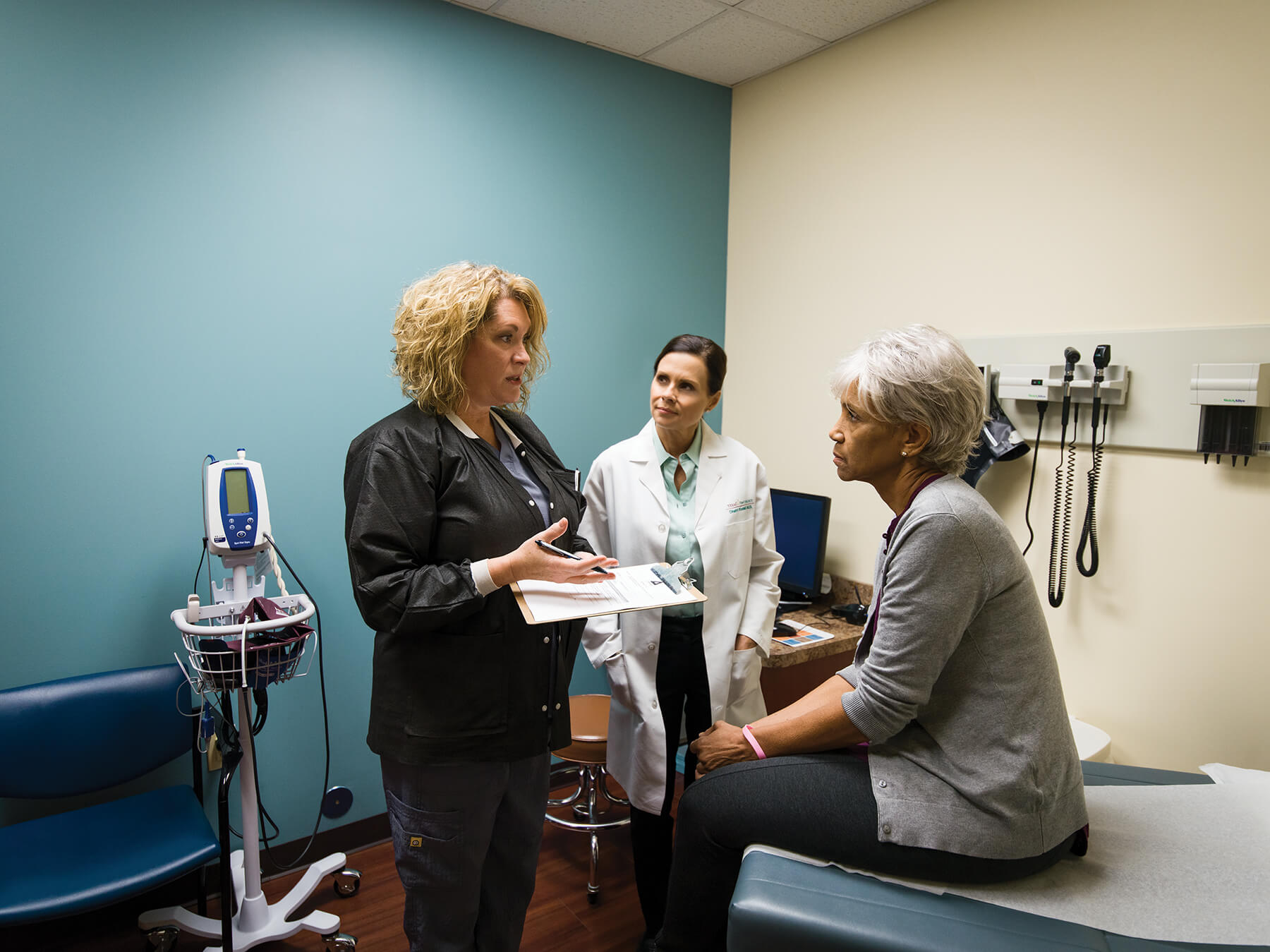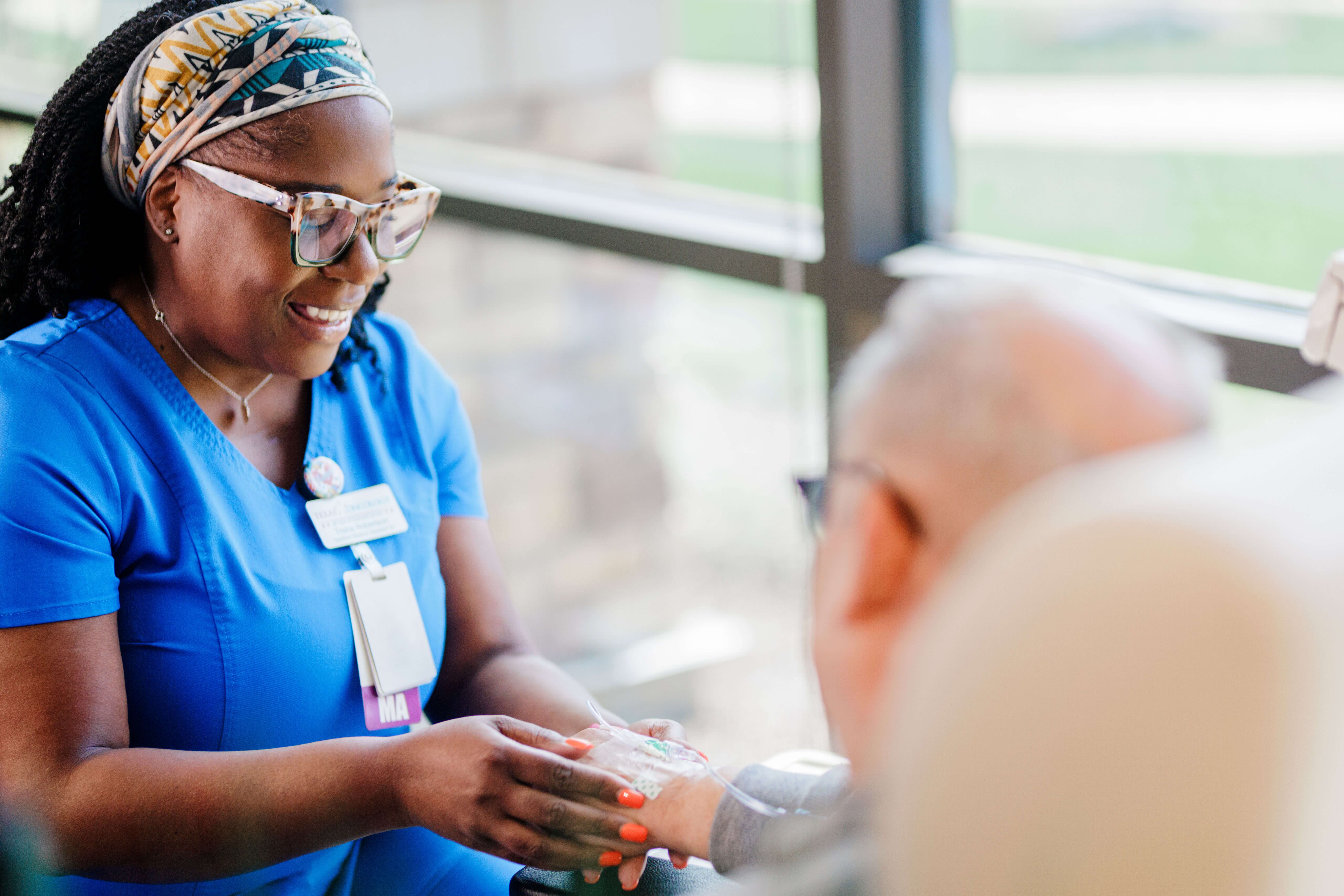« Back to Blog
The US Oncology Network is Bringing Promising New CAR T-Cell Therapy Closer to Home
Those of us in the cancer community know that progress in the fight against cancer is often measured in very small steps. Certainly since I finished my fellowship, that has been the case. Over the last 30 years, treatment for many deadly cancers has usually involved substituting one chemotherapy drug for another, buying a patient time while increasing the cure rate by a mere percentage point or two.
However, cancer research has finally taken a giant leap forward with a powerful new immunotherapy, chimeric antigen receptor (CAR) T-cell therapy. This exciting new therapy has demonstrated phenomenal results for certain hematologic cancers, while offering the promise of better outcomes for many other cancers in the future. Patients previously considered terminal are now in remission with good quality of life demonstrated for up to five years.1 Many of these patients look like they are going to be cured, as survival curves plateau after two years. The therapy is currently approved for use in relapsed diffuse large B-cell lymphoma (DLBCL), and pediatric acute lymphoblastic leukemia.
The treatment is quite complex. Thousands of the patient’s T-cells, a type of lymphocyte, are extracted from the patient’s blood. The cells are then reengineered in a laboratory using a viral vector, transforming them into cells that attack the CD19 antigen in cancer cells. Millions of these genetically modified cells are then produced in a laboratory. After undergoing lymphodepleting therapy, the programmed lymphocytes are then infused back into the patient. CAR T-cell therapy is often referred to as a “living immunotherapy” because the cells continue to multiply on their own, taking up to three months to reach maximum response.
Centers offering the therapy must be certificated and staff must receive special training to ensure they understand how to administer the therapy and identify and manage possible side effects, which can rapidly become life threatening if not treated promptly.
Bringing CAR T-Cell therapy to local communities
The US Oncology Network (The Network) is very excited about this promising therapy, and presently several practices in The Network are investing in the extensive training required to offer this innovative treatment. The Network is also working with CAR T-cell manufacturers to participate in the next clinical trials. The first such trial is for patients with relapsed DLBCL who are not candidates for an autologous stem cell transplant. The participants will be over age 70 or have other comorbidities. We hope this will be a very promising treatment option for these patients who are not considered fit enough for a transplant, which previously was the only proven curative therapy.
Presently CAR T-cell therapy is only available in a few centers around the country, many of which have waiting lists. Unfortunately, many patients simply cannot endure the burdens that traveling for treatment often present, so they have no access to this lifesaving therapy. The goal of The Network is to dramatically increase accessibility, bringing CAR T to selected practices in local communities so patients can be treated close to home.
CAR T is a very exciting development that is rapidly changing the treatment landscape. Before giving up on a patient, I encourage all physicians not familiar with CAR T to check with a CAR T treatment center to see if it is appropriate for their patient, as today there is new hope where before there was none.
1 https://www.cancer.gov/about-cancer/treatment/research/car-t-cells

